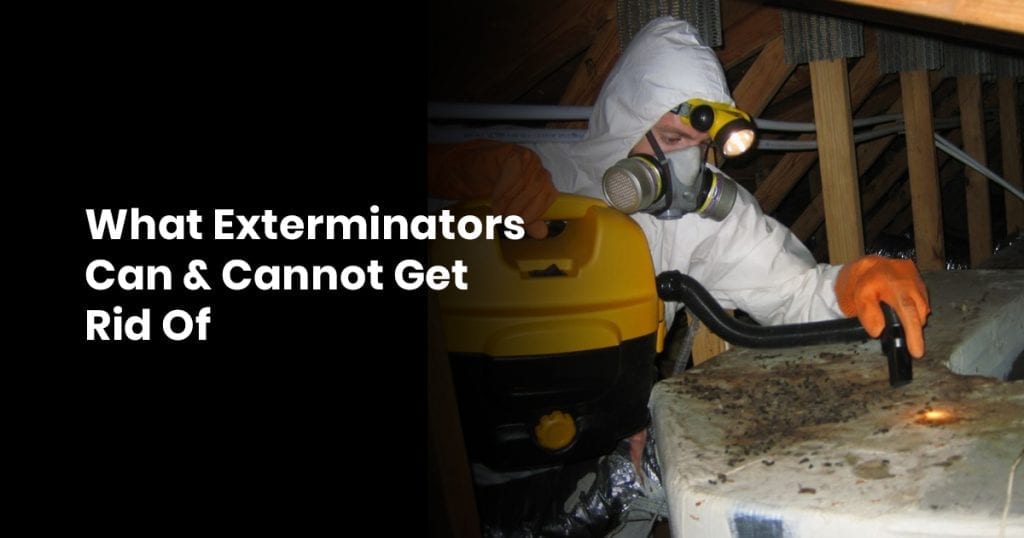When you’ve tried every DIY or store-bought pest control product you can think of and are still being overrun by insects or rodents, it’s usually time to call in the professionals.
Exterminators are those that deal with common household pests, and more specifically they get rid of them for you, but they’re not usually a one-stop-shop to fix all of your problems.
What pests can exterminators get rid of though and how do they do it?
Depending on the type of exterminator and services offered, these trained professionals are able to get rid of pests like cockroaches, ants, termites, mice, rats, and more. They do this by inspecting the home and problem areas and then treating it with poisons, baits, fumigation, traps, and sprays, depending on what pests they’ve found.
An exterminator isn’t a single solution though and most people find that their treatment plans take place over weeks, months, and sometimes even years.
By understanding exactly what exterminators are capable of and what they can and can’t deal with, you’ll know when this is the approach to take rather than relying on the DIY pest control methods that don’t seem to be getting the job done.
Contents
- 1 When Should You Call a Professional Exterminator?
- 2 The Most Common Concerns for Exterminators
- 3 What Methods Does an Exterminator Use For Pests?
- 4 How Much You’ll Spend on an Exterminator
- 5 How Many Visits Will an Exterminator Need?
- 6 Where to Find a Quality Pest Control Service
- 7 Things to Remember About Exterminator Services
- 8 Related Questions
When Should You Call a Professional Exterminator?
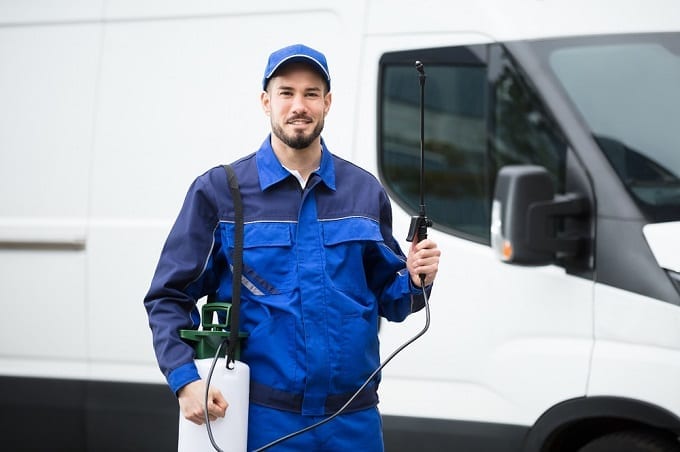
Most homes can get by with the use of DIY pest control products like mouse traps or natural insect repellents and will find that these will be sufficient in keeping them away.
However, there may be cases when a pest infestation gets out of control or can’t be managed with these types of products alone and that’s when professional help should be called in.
A professional exterminator deals with a range of pests and they are usually equipped to handle the most common ones.
This includes rodents like rats and mice or insects like bed bugs, fleas, cockroaches, and ants.
If you’ve tried your own methods for getting rid of them and they don’t seem to be working, having an expert come and give your home an assessment and recommendation for treatment is the next step.
Pest control professionals are trained to handle most things that fall under the common household pest umbrella, but they can never guarantee to rid your home of them completely.
Upon booking them, they’ll usually perform a thorough investigation of the house and surrounding area to look for signs of infestation and from there will come up with a treatment plan for the most troubling pest activity.
Although thorough with the use of harsher poisons and chemicals, hiring an exterminator isn’t a 100% guarantee and it will usually require repeat treatments to get the job done.
However, if you’ve tried to fix the problem yourself and need a harsher solution then getting help from a professional pest control service is the only way to go.
The Most Common Concerns for Exterminators
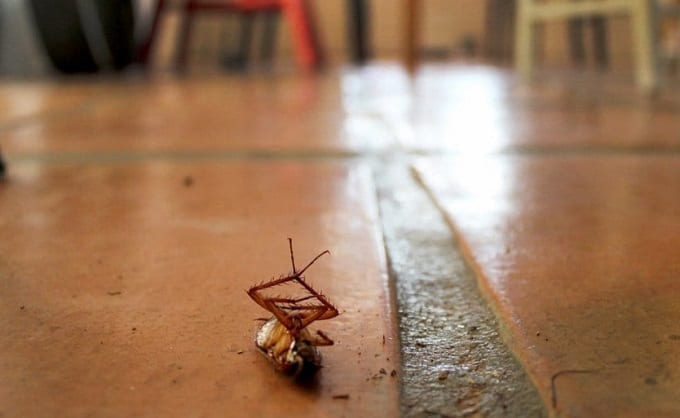
Pest control services are a booming industry in the US and there’s a number of different insects and rodents that they’re called upon to treat.
These are some of the common concerns that exterminators deal with in everyday households when treating pests.
- Ants: There are many species of ants in Northern America that can be targeted by an exterminator and they will be able to assess which ones specifically your home has. An ant infestation can appear to be on the surface but they usually have nests and colonies beyond interior walls and inside structures.
- Cockroaches: Cockroaches are capable of spreading disease around the home and have a fast reproductive cycle that means they multiply quickly. They’re notoriously hard to get rid of and usually require multiple treatments.
- Centipedes: Centipedes cause allergic reactions in some people when bitten, although they don’t usually bite humans. A centipede infestation is usually caused by the existence of another common pest in your house that they are feeding upon.
- Spiders: Many species of spiders can live in a house without being a danger but they can cause allergies with their webs. Dangerous spiders can pose a threat to animals and children who aren’t aware of how to deal with them safely.
- Beetles: Beetles come in all shapes and sizes like carpet beetles and ladybirds, and not all of them are considered household pests. An exterminator can identify those that pose a threat and work to get rid of them specifically to prevent further damage to the home.
- Fleas: Fleas are common in homes with animals and can quickly take over a house due to their reproductive cycle and ability to lay many eggs. Flea bites can be dangerous for pets and cause infection in humans due to their bites.
- Bed bugs: Bed bugs are one of the hardest pests to get rid of without professional help so calling for an exterminator who can treat the problem seriously is often the best approach if you discover them.
- Ticks: Ticks are usually found in the garden outside and can be fatal for animals and extremely dangerous for humans. They can be bought inside by pets and it is possible to get an infestation in the home.
- Termites: Termites are one of the most destructive pests due to the damage they can do to your home. When left untreated, a termite infestation has the ability to completely destroy a home from the inside out and they require ongoing action.
- Silverfish: Silverfish pose no threat to our health and safety but they can be destructive to your home and belongings. They will ruin clothing, wallpaper, and documents you have in the house unless they’re treated.
- Flies: The common housefly and fruit flies are two species that can become pests quickly, -and they have the potential to spread bacteria and disease-causing organisms through your home.
- Mice: Mice have the ability to reproduce frequently and will multiply very quickly once they’ve established themselves in your home, and they are known for carrying disease. An exterminator can set up traps and bait to remove them as well as targeting their nests.
- Moths: Although not dangerous to humans, moths feed on animal fibers found in clothes and in cupboards and can do a lot of damage when left untreated.
- Rats: Rats pose a serious health risk due to their ability to carry disease. They can also do serious damage to your home’s structure and belongings so they are one of the worst pests you can have.
- Squirrels: Squirrels don’t usually pose any threat to our health but the can do a lot of damage to the home when they build their nests. Having an infestation of squirrels in your house will lead to structural damage, chewed walls and cable, and holes in the insulation.
Not all of these pests pose a direct threat to our health and safety through bites or stings, but they do lead to other issues like allergic reactions, disease-carrying, and damage to your home and belongings.
Therefore, the sooner you notice a problem with any of these pests the sooner you should act so that it doesn’t get out of control.
What Methods Does an Exterminator Use For Pests?

An exterminator will decide on the best approach for ridding your home of pests depending on what they found during their initial assessment and investigation.
Depending on the pest they are trying to remove and the severity of the infestation, these are some of the methods they might employ.
Fumigation
This method of pest control is where an entire area is treated with pesticides or fumigants with the intention of poisoning whatever pests are inside.
The area is usually covered so that minimal air can get in and then the fumigant is sprayed so that the pests are suffocated.
It’s reserved for more serious cases where entire homes, businesses, structures, or farms need to be treated.
Physical pest control
This entails a number of methods where physical removal of the pests takes place.
It could include trapping insects and animals, spraying them with poisons, ultraviolet lights, tracking powder, and any method where physical control occurs.
Baiting
Poisoning bait is commonly used for pests like cockroaches, mice, ants, and other household pests.
An exterminator will place bait around the home with a food attractant as well as poison attached which the pest then eats and returns back to their colony so that it can kill all of the pests involved.
Sterilization
Not generally used by standard exterminators at home, sterilization is effective for larger-scale operations in an effort to reduce the population.
This process occurs when a mass rearing of a pest is performed and then all of them are sterilized before being returned back to the wild so that any attempts to mate will be useless.
How Much You’ll Spend on an Exterminator

Exterminators can be a costly service to hire and for this reason, many people prefer to use the DIY route for pest control until things become too hard to manage.
When you hire an exterminator their first visit may be solely to review the area and create a report or plan of action, so even before anything’s been done you can expect to spend some money.
According to Home Advisor, the latest figures for the average cost of a pest control service in the US is between $108 and $262 for the first visit.
This cost depends on how long they have to spend at your home and what their proposed plan of action is for getting rid of the pests.
Factors that can affect this final cost include the potential damage caused by pests like termites and wood-boring insects, whether they pose a health and safety risk to the exterminator to remove, and how severe the infestation is.
Therefore, there’s no real way to know what the costs might before they arrive even if you think you have an idea of what pests have taken over your home.
How Many Visits Will an Exterminator Need?
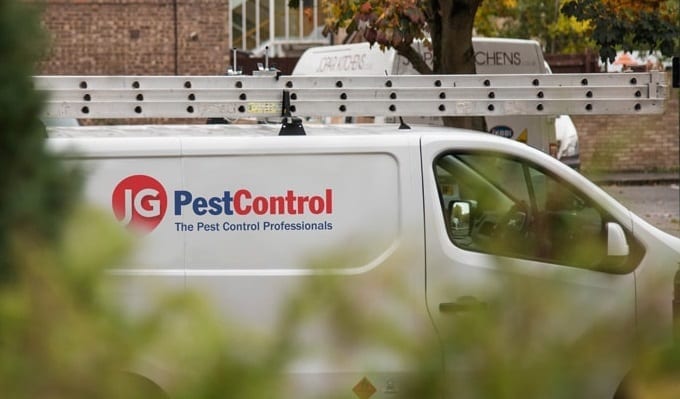
An exterminator’s job is rarely done in just one visit so having them return for future treatments is another cost you’ll have to factor in.
Their initial assessment is the first time they’ll visit your home and usually, this won’t include any treatment for pests.
If you’re only just noticing a pest problem where there hasn’t been one before it may be acceptable to get the problem sorted in a one time visit scheduled after your first examination otherwise you’ll have to opt for periodic visits.
Periodic visits can be planned with exterminators and are ideal for dealing with more serious infestations that usually can’t be treated in one go.
These visits can be scheduled for monthly or quarterly increments depending on what the issue is and what the exterminator recommends.
In some cases, you may need to arrange a pest control contract with the exterminator that spans many years in order to fully treat the problem, and this will occur with serious infestations.
Pests that usually keep returning and need more than one treatment to effectively remove include cockroaches, ticks, termites, spiders, mice, and rats.
After the initial treatment, the ongoing cost should go down so that it’s easier to maintain with a monthly average being around $50 or a quarterly visit average estimated at around $100 to $300.
Where to Find a Quality Pest Control Service
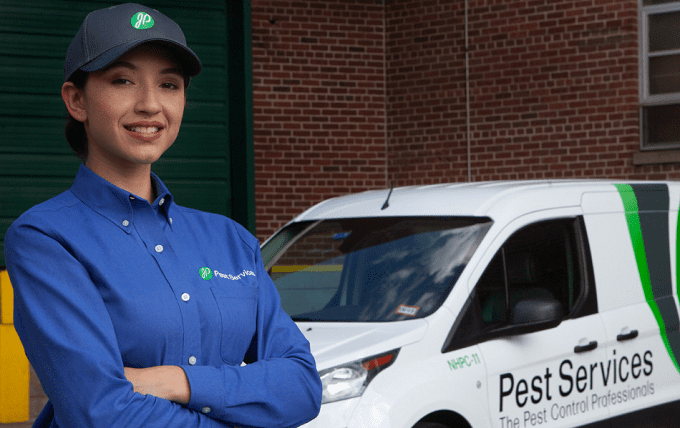
Shopping around for a good pest control service is essential to ensure you get a reputable company that has delivered real results.
The best way to find a recommendation is to speak with friends and families to see what experience others have had, and you’ll usually be surprised at how many people you know have had to deal with pest control services in the past.
A quality pest control service will be able to give you a lot of information to answer all of your queries and they should spend at least half an hour in your home during their initial assessment.
If they are offering free quotations or inspections it’s a good idea to get a few different companies around and compare their services until you find the one you’re satisfied with.
A qualified exterminator should be able to show you their identification and credentials and give you a detailed outline of what costs you can expect before they start the treatment.
Avoid choosing anyone based on their advertisements alone and look for genuine reviews and recommendations to find out more about them.
Things to Remember About Exterminator Services

Enlisting the services of an exterminator can be a costly affair and something that you should only rely on when you’re unable to treat pests yourself.
These are some things to remember before you book an exterminator to help you level your expectations.
- Using an exterminator is not a guarantee. Just because you’re paying for a service they are not able to guarantee that pests will never return nor that a particular treatment will work.
- They will usually have to return. In most cases, you won’t be able to fully treat the problem with just one visit. If a pest infestation has gotten so out of control that you couldn’t deal with it yourself there’s a good chance you’ll need a few treatments.
- You still have work to do. An exterminator will tell you what’s required of you to keep pests away which could include sealing entry points, organizing your pantry, removing moisture, and fixing structural damage to the home.
- You might not need an exterminator. Before spending hundreds or thousands on a professional service, try some DIY or store-bought pest control products like mouse traps, ultrasonic repellents, and homemade insect sprays to see if you can deal with them naturally and more affordably.
Related Questions
Calling in the professionals for pest control services can be daunting when you don’t know what to expect.
If you’re new to the process of hiring exterminators we’ve answered some commonly asked questions about what they do to give you an introduction to their services.
How Dangerous is Pest Control?
Almost all methods used by exterminators involve the use of toxic chemicals and therefore should only be applied by professionals.
This type of pest control should be used as a last resort once you’ve tried to treat the pests with natural methods that don’t contain toxic chemicals.
How Long After Pest Control Can I Return Home?
Depending on the method used to treat pests, you should avoid being in the house for 2-4 hours after the exterminator has visited.
However, the company will give you detailed information about your health and safety as well as recommended guidelines for when it’s safe again to return.
How Long Does it Take for Roaches to Die After Extermination?
After a pest control service has visited and performed a treatment to kill cockroaches, you can expect to see them alive for the next two weeks.
In some cases, results may be immediate but you should give it a full fortnight before determining whether the extermination was effective.

